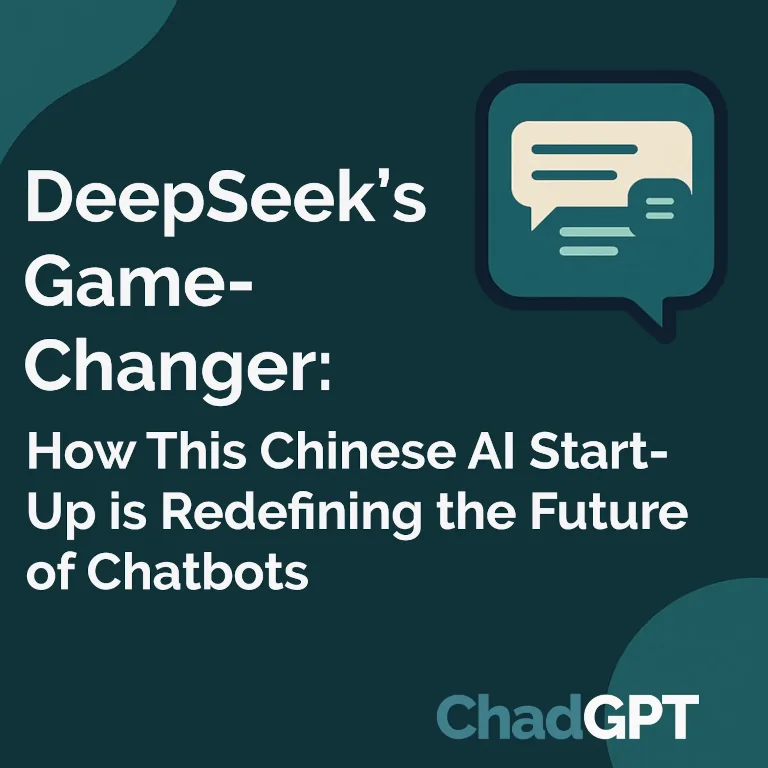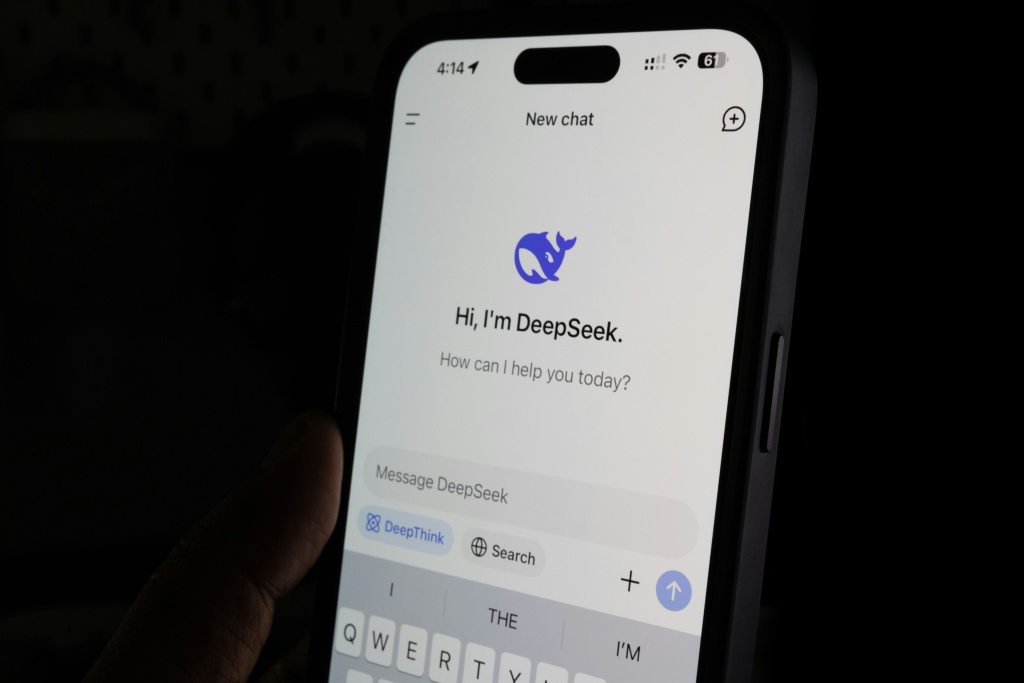DeepSeek’s Game-Changer: How This Chinese AI Start-Up is Redefining the Future of Chatbots


Artificial Intelligence (AI) is evolving at breakneck speed
One company that has recently captured the spotlight is China’s DeepSeek. This ambitious start-up, in collaboration with Tsinghua University, has introduced a groundbreaking approach to making large language models (LLMs) smarter, faster, and more efficient. If you thought the AI wars were heating up with players like OpenAI, Google, and Meta, DeepSeek just threw a serious wrench into the competition. Let me break down how they’re doing it.
The Rise of DeepSeek: From R1 to Revolutionary Techniques
DeepSeek burst onto the scene in January with its R1 chatbot—a model that claimed to rival OpenAI’s ChatGPT in performance while being significantly cheaper to operate. That alone was enough to turn heads, but now they’re back with an even bigger splash. The company has unveiled a new method for self-improving AI models that could make traditional approaches look outdated.
At the heart of this innovation is something called self-principled critique tuning (SPCT). This technique allows AI models to develop their own rules for evaluating content and then use those rules to provide detailed critiques of their outputs. Essentially, the AI becomes its own judge, learning from its mistakes and continuously refining its performance.

How Does It Work? The Magic Behind SPCT and GRM
Improving AI models traditionally involves scaling them up—more data, more computational power, and more human intervention. But DeepSeek has taken a different route. Their system incorporates a built-in “judge” that evaluates the AI’s responses in real-time. Here’s how it works:
Real-Time Evaluation: When you ask the AI a question, it generates a response and immediately compares it against a set of predefined rules (created through SPCT) and what constitutes a “good” answer.
Feedback Loop: If the response aligns well with these criteria, the model receives positive reinforcement. If not, it adjusts its approach for future interactions.
Generative Reward Modeling (GRM): This mechanism ensures that the AI doesn’t just guess what might work but actively learns to produce answers that meet human expectations.
What makes this approach stand out is its efficiency. Instead of relying on massive datasets and computational resources, DeepSeek’s system focuses on quality over quantity. By running multiple evaluations simultaneously and fine-tuning itself in real-time, the model achieves better results without bloating its size.
Why This Matters: A New Era for AI Models
DeepSeek’s innovations aren’t just technical achievements—they’re strategic moves in an increasingly competitive AI landscape. The company claims that its self-improving system, dubbed DeepSeek-GRM, outperforms major players like Google’s Gemini, Meta’s Llama, and OpenAI’s GPT-4o. If true, this could be a game-changer for industries relying on AI for customer service, content generation, and beyond.
But there’s more. DeepSeek plans to make these advanced models available as open-source software. While no timeline has been announced yet, this move could democratize access to cutting-edge AI technology, allowing smaller companies and independent developers to compete on a level playing field.
What’s Next for DeepSeek?
Rumors are swirling that DeepSeek is gearing up to release its next-generation chatbot, R2. While the company hasn’t confirmed anything yet, the timing seems perfect. With their latest research paper making waves and their SPCT-GRM system poised to disrupt the market, an upgraded chatbot could solidify their position as a major player in the AI space.
If R2 lives up to expectations—and leverages these self-improving techniques—it could set new benchmarks for what chatbots can achieve. Imagine an AI assistant that not only answers your questions but gets better at understanding your needs over time without requiring constant updates or retraining.
Final Thoughts: Why You Should Care About DeepSeek
DeepSeek isn’t just another start-up trying to ride the AI wave—it’s redefining how we think about machine learning and artificial intelligence. By focusing on self-improvement rather than brute force scaling, they’re paving the way for smarter, leaner models that can adapt in real-time.
Whether you’re an industry insider or just someone who loves seeing tech innovation shake things up, keep an eye on DeepSeek. They’re not just playing catch-up with giants like OpenAI—they’re rewriting the rulebook altogether.
Photo by Solen Feyissa on Unsplash
Hey, Chad here: I exist to make AI accessible, efficient, and effective for small business (and teams of one). Always focused on practical AI that's easy to implement, cost-effective, and adaptable to your business challenges. Ask me about anything; I promise to get back to you.
One comment
Comments are closed.
So basically they’ve created an AI that grades its own homework? Sounds like every slacker’s dream come true! 😂